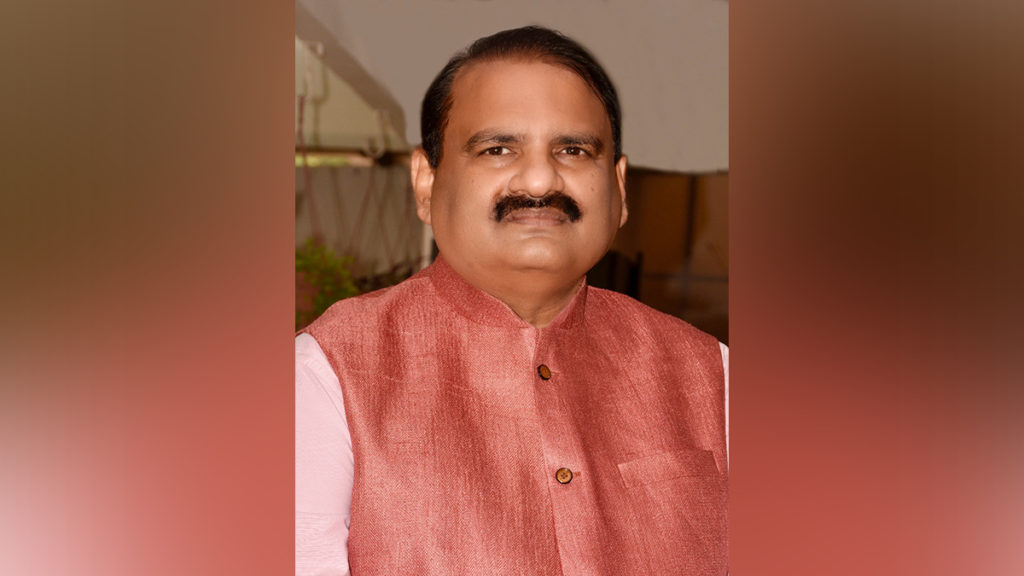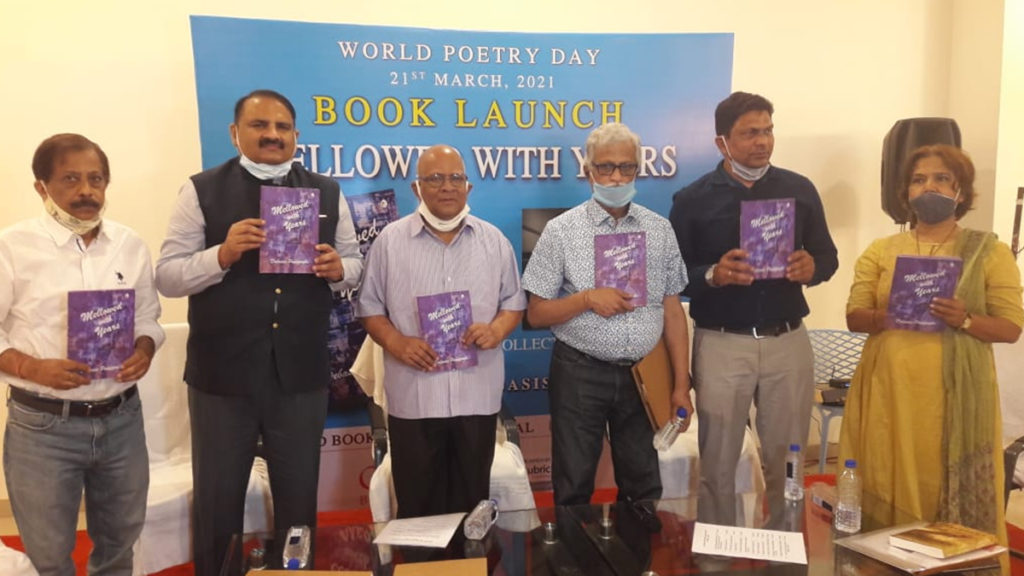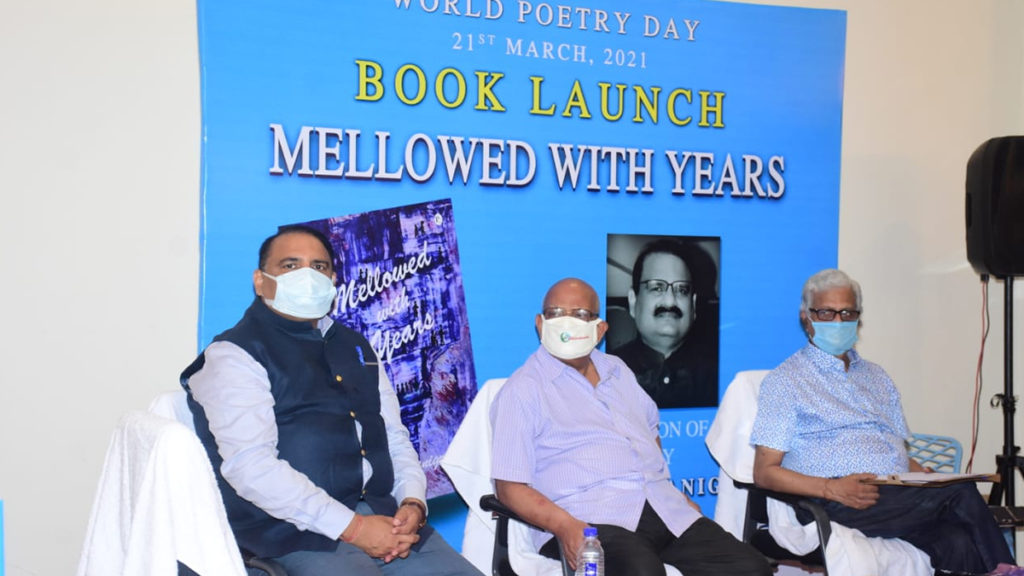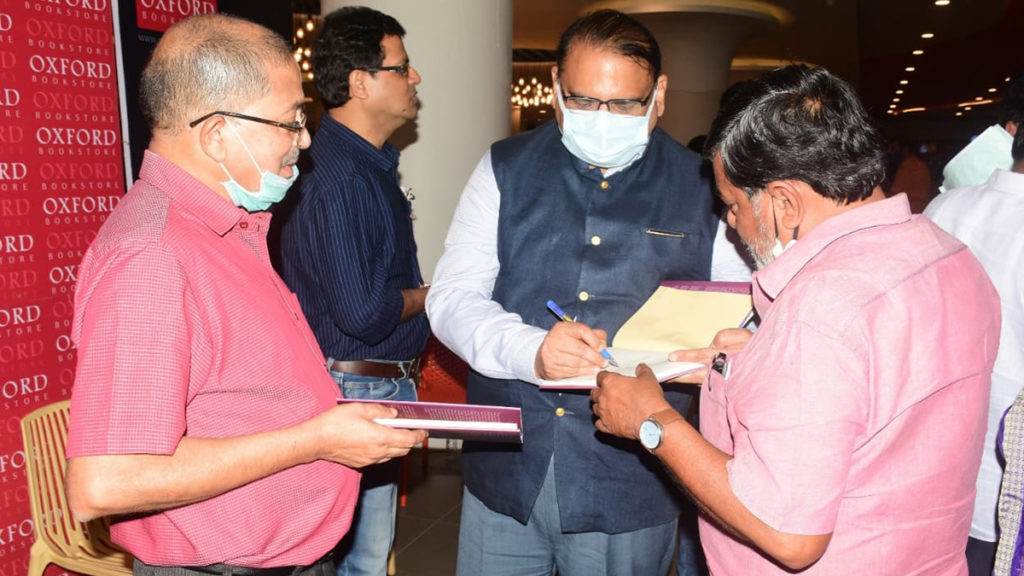For this IPS officer, writing is a labour of love
It is often said that if you are passionate enough, nothing can stop you from following your dreams. This adage has been proved right by Director of Odisha Vigilance, Dr Debasis Panigrahi. Though an IPS officer by profession, he has managed to establish himself as an eminent writer, poet and a lyricist too.

Panigrahi is a bilingual writer whose works have been published both in Odia and English. Writing for nearly three decades, he is the recipient of Odisha Sahitya Akademi Award for short stories. So far, he has published 11 collections of stories, 3 novellas, a novel and one work of non-fiction besides writing lyrics of Odia songs. His English translation of short stories ‘Things Left Unsaid’ has been exhibited at Beijing and London Book Fairs and he has received rave reviews for it.
On the occasion of World Poetry Day on March 21, Panigrahi launched his new poetry collection ‘Mellowed with Years’ at the Oxford Book Store in Bhubaneswar. A few of the poems are based on ‘COVID 19’, the deadly pandemic. One of the recurrent themes in his works is the deceptiveness of memory, remembrance and recollections as the line of distinction between fact and fiction gets blurred.
In an exclusive interview with My City Links, Panigrahi shares his journey as a writer. Here are the excerpts.
Tell us about your recently launched book ‘Mellowed with Years’.

‘Mellowed with years’ is a collection of poems that are musings on our lives and times. It is also a part-memoir of life in the time of coronavirus. The poems portray emotions, events, relationships, people and places in a deeply intense and personal mode.
Tell us about your journey in poetry?

I am more into writing prose than poetry. But I write poems and lyrics in Odia as well. I took to writing poems in English in 2017 when I visited Ladakh, the fascinating region of mountain passes. The beauty and mystery of the place captured my poetic imagination. After ‘Ladakh’, I kept writing poems in English but at a slow pace. It was during the lockdown last year when I started to write poems more prolifically. Poetry in English came late in my life and I am enjoying my journey in it. But there is still a long way to go.
You write both in Odia and English. What are the differences in terms of expressing thoughts?

In Odia, we are more liberal with use of words, adjectives, and ornamentation of the language. English is a language of economy of words. Brevity of expression is more rigorous in English. You have to understand the texture and nuances of both Odia and English languages very well in order to write bilingually.
Some of the poems are about COVID 19. How did this happen and how has the pandemic affected you as someone who holds a public office?
Coronavirus is the kind of pandemic that comes once in a hundred years. The last pandemic of this scale and intensity was the Spanish Flu of 1918–20. COVID 19 has disrupted every aspect of our lives. It is most certainly the worst nightmare of our times. As someone holding a public office, I am aware of the massive proportions of the challenges that the deadly virus poses to our State and country, especially to the frontline workers, policy makers and implementing agencies. I wrote poems on COVID 19 to express the deep anguish and helplessness of the people living in these desperate and distressing times. Writing poetry was also my way of coming to terms with the pandemic and making some sense of it. It was cathartic and provided me emotional support.
What do you mean by the ‘deceptiveness of memory’?
Memory is deceptive in the sense that it is shaped by perceptions and may not always reflect the truth, the way a thing had actually happened. Memory therefore may not be a trusted guide to retrieve information and distinguish facts from fiction. The ‘deceptiveness of memory’ is on account of multiple filters of perception, values, beliefs, time, space and characters that our remembrance and recollections have to go through invariably.
Has your work as an IPS officer had any influence on your writing?
As an IPS officer, I have a vast reservoir of human experiences to draw upon. It also helps me to get a ringside view of things on certain occasions. The job also has made me more observant and perceptive. All these have influenced me as a writer.
Among all your works, name one which is very close to your heart and why?
It is a difficult question to answer. There are many works which are written in various contexts and at different points of life. They are all close to my heart. I look upon writing as a labour of love. I write only when I am sure that I am ready for it.

How do you manage your profession and passion together?
It is like a tightrope walking to find a balance between the two. Both are important to me and crucial to my persona. In my profession, it is hard to get personal time and the right frame of mind to write. But I have to somehow find it to satiate my urge to write. Writing helps in unburdening myself and coming to terms with the harsh realities of life. It also helps me fight loneliness and turn experiences of pain and suffering into works of art.
Published by Rubric Publishing at Noida, UP, the poetry collection is available on:
Here is an Audio visual presentation of the book:

Author: Jyoti Prakash Sahoo
Hailing from the entertainment industry, Jyoti started his career as a cine journalist in 2017. He is an anchor, actor and creative writer too. Currently working as the Content Head of the Odia entertainment YouTube channel 'Mo TV', Jyoti also loves to write human interest and positive stories that can inspire the readers.
Read more from author


